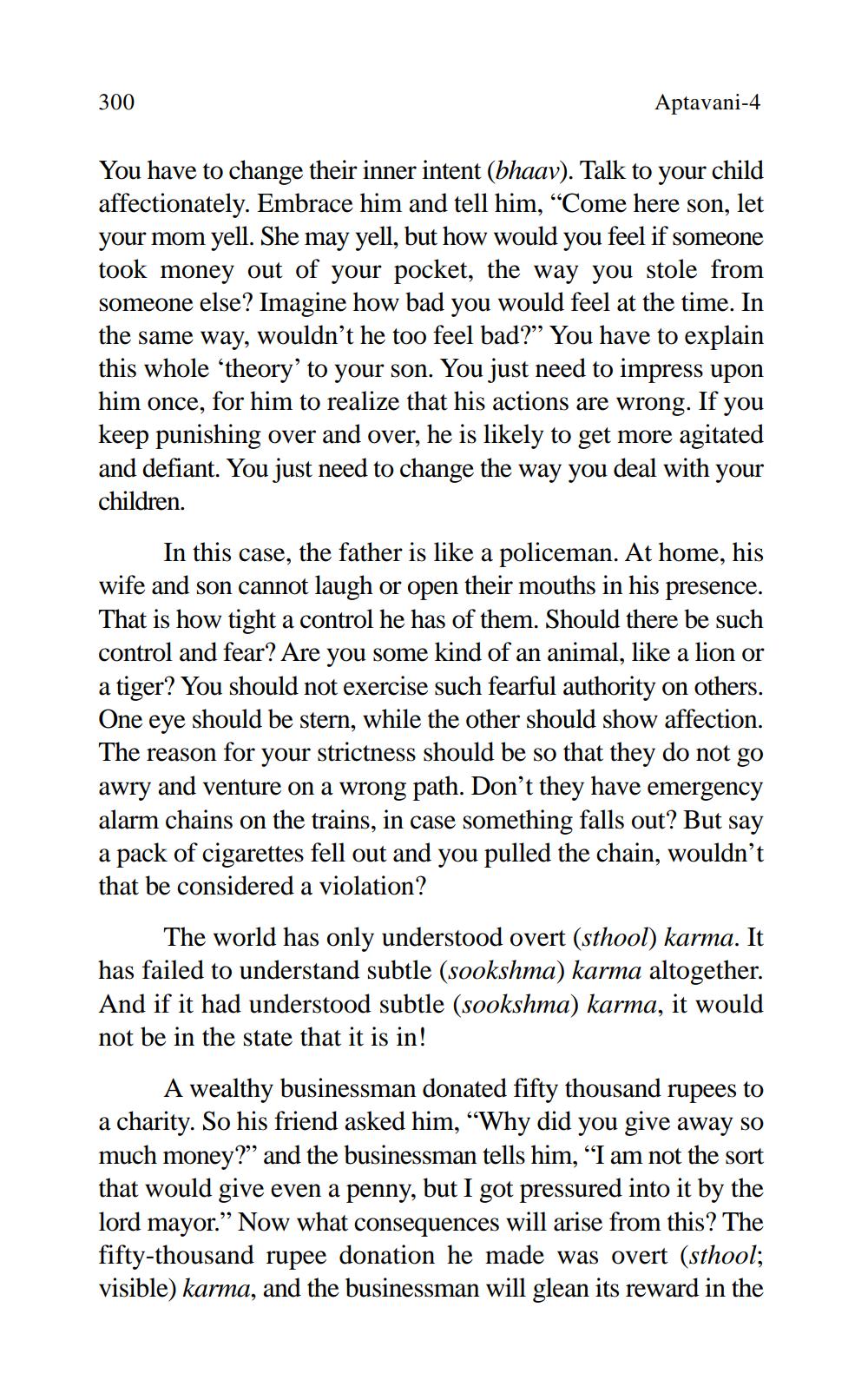________________
300
Aptavani-4
You have to change their inner intent (bhaav). Talk to your child affectionately. Embrace him and tell him, “Come here son, let your mom yell. She may yell, but how would you feel if someone took money out of your pocket, the way you stole from someone else? Imagine how bad you would feel at the time. In the same way, wouldn't he too feel bad?” You have to explain this whole ‘theory' to your son. You just need to impress upon him once, for him to realize that his actions are wrong. If you keep punishing over and over, he is likely to get more agitated and defiant. You just need to change the way you deal with your children.
In this case, the father is like a policeman. At home, his wife and son cannot laugh or open their mouths in his presence. That is how tight a control he has of them. Should there be such control and fear? Are you some kind of an animal, like a lion or a tiger? You should not exercise such fearful authority on others. One eye should be stern, while the other should show affection. The reason for your strictness should be so that they do not go awry and venture on a wrong path. Don't they have emergency alarm chains on the trains, in case something falls out? But say a pack of cigarettes fell out and you pulled the chain, wouldn't that be considered a violation?
The world has only understood overt (sthool) karma. It has failed to understand subtle (sookshma) karma altogether. And if it had understood subtle (sookshma) karma, it would not be in the state that it is in!
A wealthy businessman donated fifty thousand rupees to a charity. So his friend asked him, “Why did you give away so much money?" and the businessman tells him, “I am not the sort that would give even a penny, but I got pressured into it by the lord mayor.” Now what consequences will arise from this? The fifty-thousand rupee donation he made was overt (sthool; visible) karma, and the businessman will glean its reward in the




